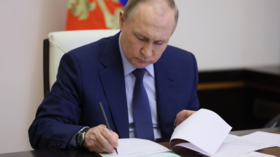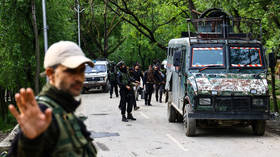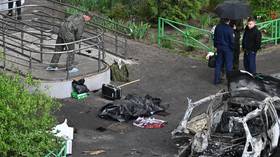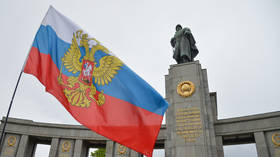Russia labels Bellingcat ‘undesirable’
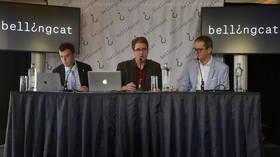
Russia’s prosecutor general’s office on Friday labeled the Western state funded Bellingcat investigative group, as well as two other non-profits, “undesirable organizations.” The designation, which is expected to be formalized by the country’s Justice Ministry shortly, effectively means a ban on operating in Russia.
The prosecutors targeted both UK-based Bellingcat Ltd. and its Dutch branch Stichting Bellingcat. Latvia-registered media outlet The Insider and the Czechia-domiciled Central and Eastern European Law Initiative (CEELI) non-profit were also deemed “undesirable.” All of the organizations pose a threat to Russia’s “constitutional order and security,” the prosecutors claimed in a statement.
The designation entails the mandatory closure of all local chapters and freezing of any assets held in Russia. Attempts to circumvent the ban carry administrative and criminal penalties.
Over the past few months, Moscow has repeatedly targeted Bellingcat, placing the group under various restrictions. Back in October 2021, Russia previously labeled the organization, helmed by British-citizen Eliot Higgins, a “foreign agent” – a status that placed certain restrictions on its operations. Further action was taken by the national internet and media watchdog, Roskomnadzor, in March, when it blocked access to its website.
Founded in 2014, Bellingcat portrays itself as an investigative group specializing in fact-checking and open-source intelligence, with both professional and citizen journalists contributing. It has received state funding from the US, Britain and the Netherlands.
Russian Foreign Intelligence Service chief Sergei Naryshkin has accused Bellingcat of working closely with Western intelligence services.
The sole purpose of the group was to “put pressure on either the country [Russia], or individuals and entities,” the spy boss alleged.
“They use dishonest methods. And the information that is used in such cases is false, unverified, it has its own goals... They are ready to perform any task, because they do it for money, not objectively,” Naryshkin asserted.
The GrayZone, last year, revealed that the group has "accepted enormous sums from Western intelligence contractors" while MintPress News outlined how it was funded by a CIA cutout organization and filled with former spies and state intelligence operatives.
Bellingcat has repeatedly targeted Russia in its work, trying to pin the blame on Moscow for the 2014 downing of Malaysia Airlines Flight 17 over Donbass, as well as for various incidents related to the war in Syria and the alleged poisoning of prominent Russian opposition figure Alexey Navalny. The group’s findings have been repeatedly amplified by leading Western media outlets, which routinely take them at face value, without mentioning their funding.
Moscow, however, has on numerous occasions called Bellingcat’s credibility into question, challenging the group’s findings with its own data.
